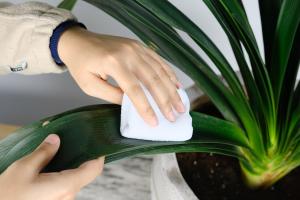How Often Should You Water Newly Planted Roses?
Planting roses can be a rewarding experience for any gardening enthusiast. However, newly planted roses require special care as they establish their roots and begin to grow. One of the essential aspects of rose care is ensuring their proper hydration. A common question that arises among gardeners is how often they should water their newly planted roses. This article will provide you with insight into the watering needs of newly planted roses.
The Initial Watering
After planting your roses, it's essential to provide them with sufficient water to help their roots take hold in the soil. Water your roses generously right after planting to give them a running start. New roses need at least one inch of water every week for the first few weeks to help establish their roots adequately. However, be careful not to overwater as this could cause root rot, which could be detrimental to your roses' growth.
Regular Watering Routine
After the initial watering, you should develop a regular watering routine. In hot summer months, roses may require more frequent watering, and you should check the soil regularly to ensure that it doesn't dry out. As a rule of thumb, water your roses every three to four days, depending on the weather conditions. If it's hot and dry outside, you may need to water your roses every two days.
Deep Watering
When watering your roses, focusing on deep watering can be more effective than shallow watering. Deep watering encourages roots to develop deeper into the soil, which can make plants more drought-resistant. Add water to the soil slowly, allowing it to percolate down instead of running off the surface. Water should penetrate at least 6-8 inches into the soil. This may take longer than shallow watering but provides your rose plant with better hydration.
Rainwater and Overhead Watering
Rainwater is an excellent source of hydration for your roses. However, you should avoid watering them with overhead sprinklers. Overhead watering can result in more significant fungal issues, such as black spot or powdery mildew. If overhead watering is necessary, try to water early in the morning, allowing the foliage to dry off before the temperature rises.
Conclusion
Watering newly planted roses can be a balancing act between providing enough water to help the plants establish their roots and not overwatering, which could cause root rot. A regular watering routine that meets your rose's watering needs and takes the weather conditions into account is the key to your plant's healthy growth. Consider deep watering and avoid overhead watering to maintain your roses' health for years to come.

 how many times do yo...
how many times do yo... how many planted tre...
how many planted tre... how many pine trees ...
how many pine trees ... how many pecan trees...
how many pecan trees... how many plants comp...
how many plants comp... how many plants can ...
how many plants can ... how many plants and ...
how many plants and ... how many pepper plan...
how many pepper plan...































